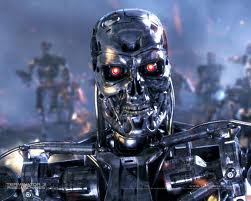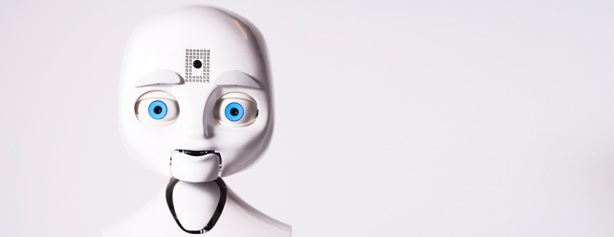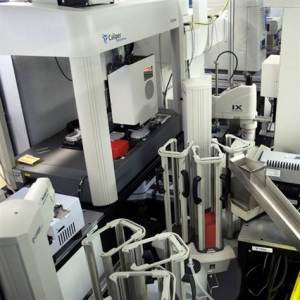Modern science fiction is fixated on the the premise that robots will overcome humans some day in the future and rule the world. When this notion is explored and dramatized by Hollywood producers with megamillon dollar budgets, stories such as I-Robot, Robocop, and Terminator, just to name a few, arrive at the screen, ready to entertain us as they play on our collective fear.

This collective, universal fear stems from the belief that the human race will one day become “sheeplike” nomads that roam the Earth without the ability to reason, while robots become the leaders of societies and make executive, judicial, and legislative decisions which in turn lead our lives.
As the field of robotics continues to expand through the use of networking and Internet technology, can this really lead to robot-led societies that relegate human beings as outdated, useless, and inefficient pieces of flesh, while elevating their robotic counterparts as the societal norm.

Preview Massachusetts Institute of Technology Media Lab’s Personal Robots Group and you’ll see some alarming, yet spooky progress being made, right before our very eyes.

In particular, I found the Gizmo Gremlin-looking project Leonardo Robot to be almost incredible, yet realized that it’s just the inevitable direction that technology is leading (taking) us. Leonardo has 69 degrees of freedom — 32 of those are in the face alone. As a result, the robot is capable of near-human facial expression (constrained by its creature-like appearance). It also uses facial recognition technology. So, once you interact with it, it can recognize your face as well as the face of others whom are introduced to it via memory. Leonardo also is being developed with a synthetic skin capable of detecting temperature, proximity, and pressure. When these features are combined, this makes Leonardo the most expressive robot in the world today.
The Automated Experimentation Journal recently published a paper indicating that robots could indeed replace the function of some scientists in the future, indicating that a system has been created which “uses techniques from artificial intelligence to automate all aspects of the scientific discovery process: it generates hypotheses from a computer model of the domain, designs experiments to test these hypotheses, runs the physical experiments using robotic systems, analyses and interprets the resulting data, and repeats the cycle.”
The derivative of the system are two robot prototypes called Adam and Eve.

Adam, in operation since 2005, “has recently proven the potential of such systems by identifying twelve genes responsible for catalysing specific reactions in the metabolic pathways of the yeast Saccharomyces cerevisiae” and, because the work was “formally recorded in great detail using logic, ” perhaps greater than the means of a human, several scientists make the claim in their paper that “the reporting of science needs to become fully formalised and that Robot Scientists can help achieve this.” While Eve is still under development, she’s designed to demonstrate the automation of closed-loop learning, feeding the conclusion of each experiment back into her experimental models. According to Popular Science, “when Eve is ready, the two systems will be combined so they can cross-experiment with one another” and bring the field of science “the real benefit of autonomous, robotic experimentation: formalization.”
The combination of Adam and Eve presents stark realities for the future of laboratories and their use of emerging technologies, each of which leads to the fact that humans are perhaps unable to formalize processes to the extent that a robot can. In essence, the ability of robots to produce scientific logic far outweighs that of the capacity of human scientists.
Can this process be replicated in other scientific experiments? MIT sure believes so and others do as well. And if so, does this imply that robots are inevitably poised to become the leaders of the scientific revolution and, as a consequence, of societies around the world? While many ethical arguments are still in place for the capacity of humans, the terrifying truth is that they seem to be already on their way.
